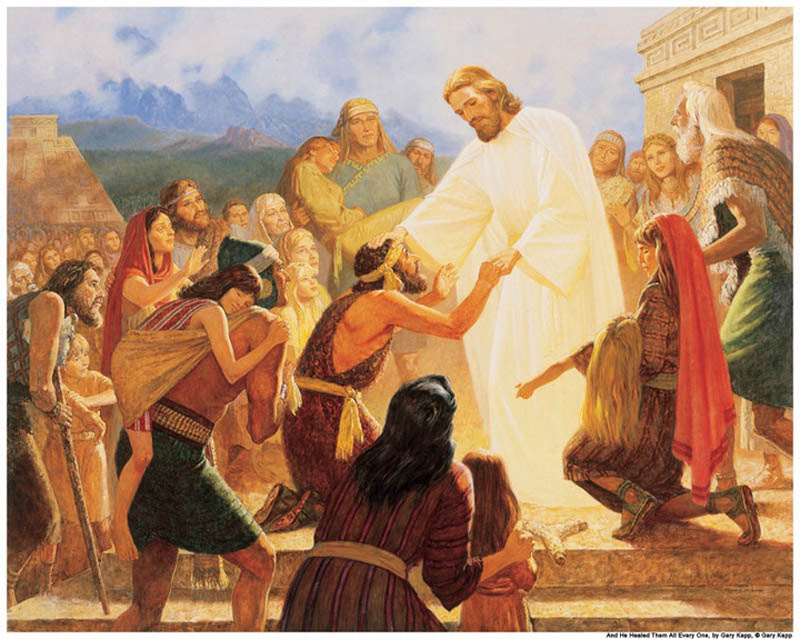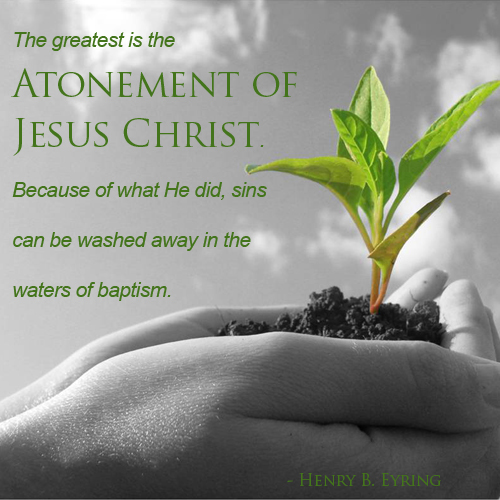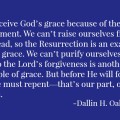In this series of articles on Christ in the Book of Mormon, we’ve spent a great deal of time exploring verses related to the atonement. 2 Nephi 2 was almost entirely on that subject. Today we will explore 2 Nephi 9, which also discusses the atonement of Jesus Christ in-depth.
 In the previous article on Christ in the Book of Mormon we studied the prophet Lehi’s dying teachings to his young son Jacob. In this chapter, Jacob is now grown and teaching the gospel himself under the direction of his brother Nephi, who is the new prophet. The family has separated into two groups, one led by the wicked Laman, and the other by Nephi.
In the previous article on Christ in the Book of Mormon we studied the prophet Lehi’s dying teachings to his young son Jacob. In this chapter, Jacob is now grown and teaching the gospel himself under the direction of his brother Nephi, who is the new prophet. The family has separated into two groups, one led by the wicked Laman, and the other by Nephi.
Jacob, like his father, is teaching about the atonement. Much of the Book of Mormon expounds on the topic of being saved, which is why Mormons just roll their eyes when told they don’t believe we are saved by Jesus.
In verse 6, Jacob reminds his listeners that everyone will eventually die and because of that, there has to be a plan to allow them to be resurrected. The Fall of Adam had caused man to become separated from God. In the following verse, he says that because of the Fall, there is a need for an infinite atonement. If there was not an atonement, the first judgment of man would be the final one and no one would be able to rise from the dead or be forgiven and saved.
What is an Infinite Atonement?
Russell M. Nelson, a Mormon apostle, explained what Jacob meant by the term “infinite atonement” in verse 7:
“In preparatory times of the Old Testament, the practice of atonement was finite—meaning it had an end. It was a symbolic forecast of the definitive Atonement of Jesus the Christ. His Atonement is infinite—without an end. It was also infinite in that all humankind would be saved from never-ending death. It was infinite in terms of His immense suffering. It was infinite in time, putting an end to the preceding prototype of animal sacrifice. It was infinite in scope—it was to be done once for all. And the mercy of the Atonement extends not only to an infinite number of people, but also to an infinite number of worlds created by Him. It was infinite beyond any human scale of measurement or mortal comprehension.
Jesus was the only one who could offer such an infinite atonement, since He was born of a mortal mother and an immortal Father. Because of that unique birthright, Jesus was an infinite Being.” (See Elder Russell M. Nelson, The Atonement, General Conference, November 1996.)
What is Our Responsibility for the Atonement?
Atonement means to be “at one” and that means it brings us to a oneness with God. It does not mean, however, that accepting Jesus Christ as our Savior gives us a free pass to be as wicked as we choose to be. That wouldn’t actually make sense. The atonement came about because we are not perfect beings. It made it possible to repent, and repentance is a requirement. It is one of the things that makes the atonement infinite. We can repent as often as we need to.
(And the times of this ignorance God winked at; but now commandeth all men every where to repent: Because he hath appointed a day, in the which he will judge the world in righteousness by that man whom he hath ordained; whereof he hath given assurance unto all men, in that he hath raised him from the dead. (Acts 17:30-31)
If we repent once and accept Jesus Christ as our Savior, we are not then free to do anything we want to do. Jesus said that if we love Him, we must keep His commandments. Obedience to the commandments is a demonstration of the depth of our love for the Savior, if it is done for that reason. Those who obey without love receive no reward other than the natural rewards that come from doing the right thing. The eternal rewards, however, are for doing the right things for the right reasons. They don’t save us—only the atonement can do that—but they do demonstrate whether or not our declaration of faith is real and they show a commitment to become worthy of God’s presence. We will be ourselves when we die and Heaven won’t be worth much if it is filled with people who prefer sin to obedience.
The infinite atonement is one of God’s greatest gifts to mankind. Read the rest of the chapter to learn more about the relationship between the atonement and living a Christ-like life.
http://youtu.be/FEmTC1pLJGk
About Terrie Lynn Bittner
The late Terrie Lynn Bittner—beloved wife, mother, grandmother, and friend—was the author of two homeschooling books and numerous articles, including several that appeared in Latter-day Saint magazines. She became a member of the Church at the age of 17 and began sharing her faith online in 1992.





